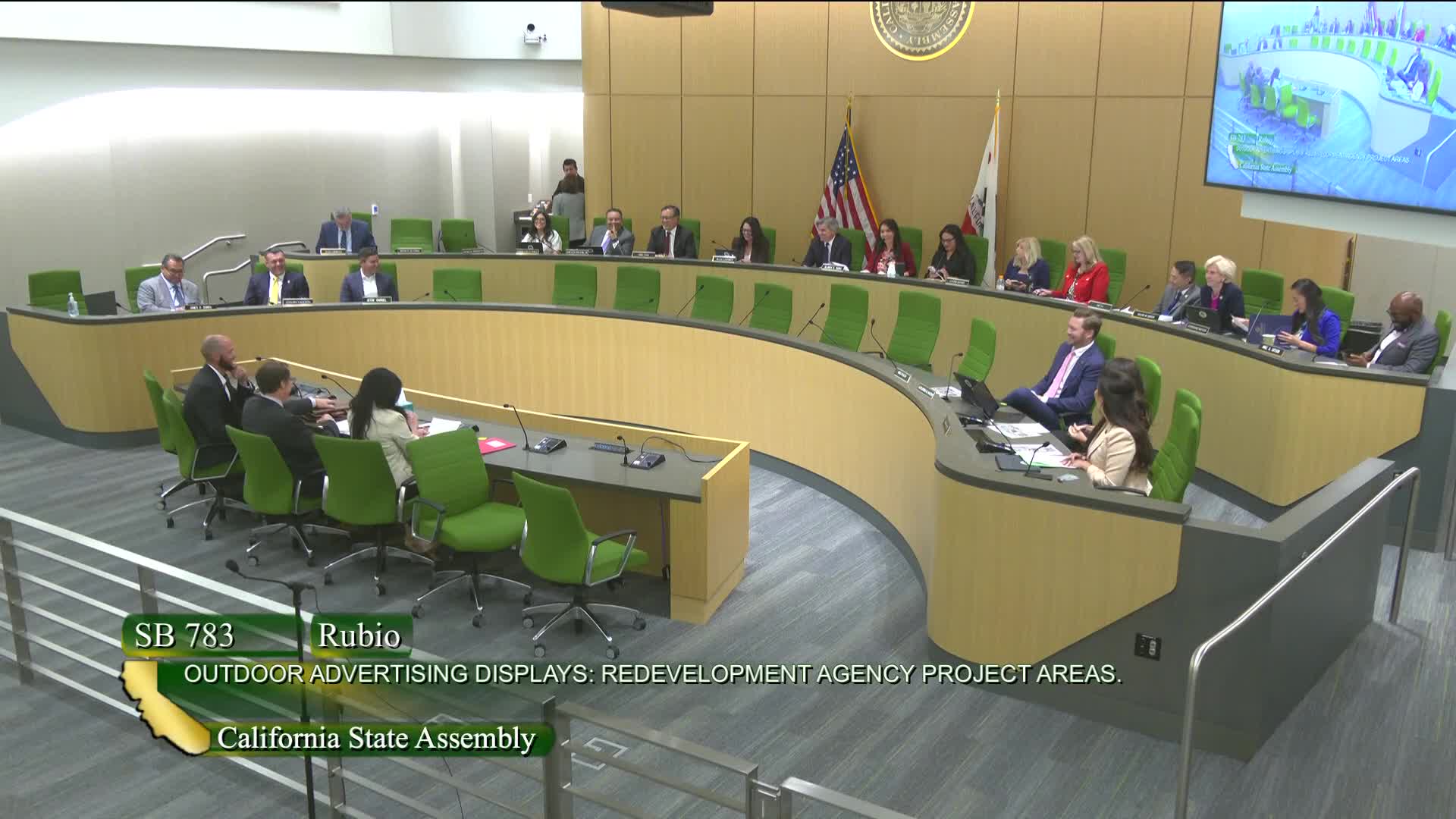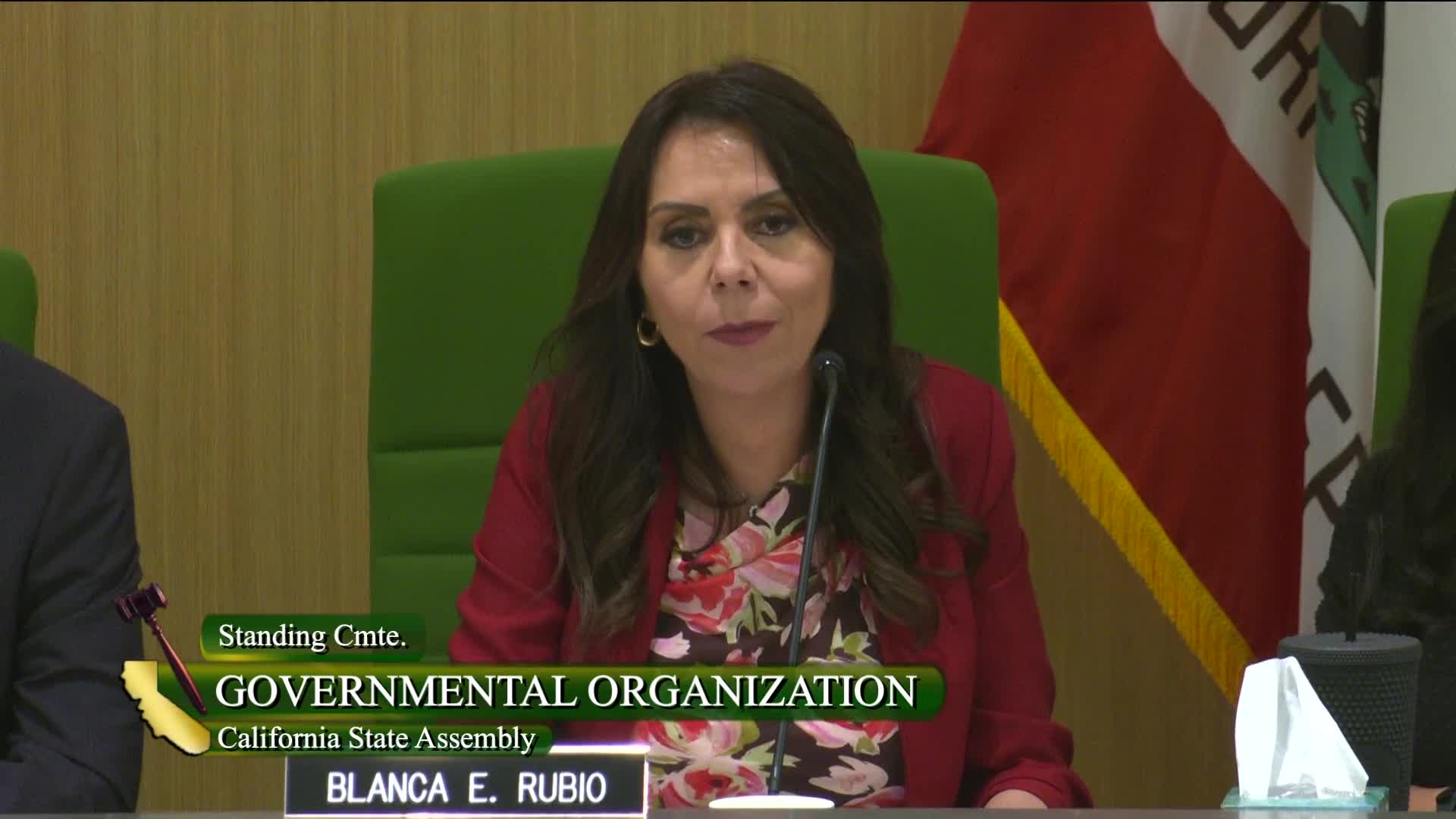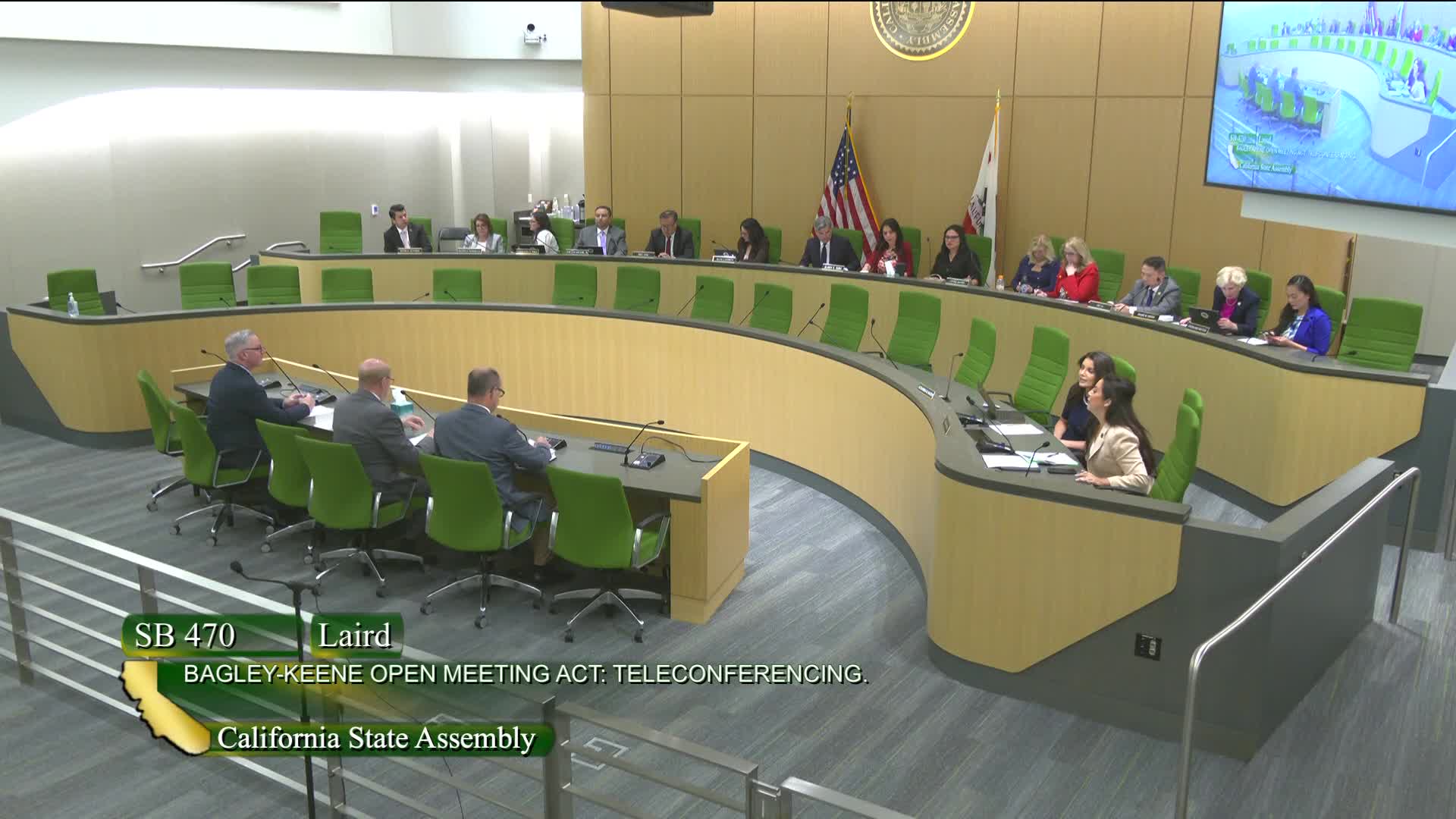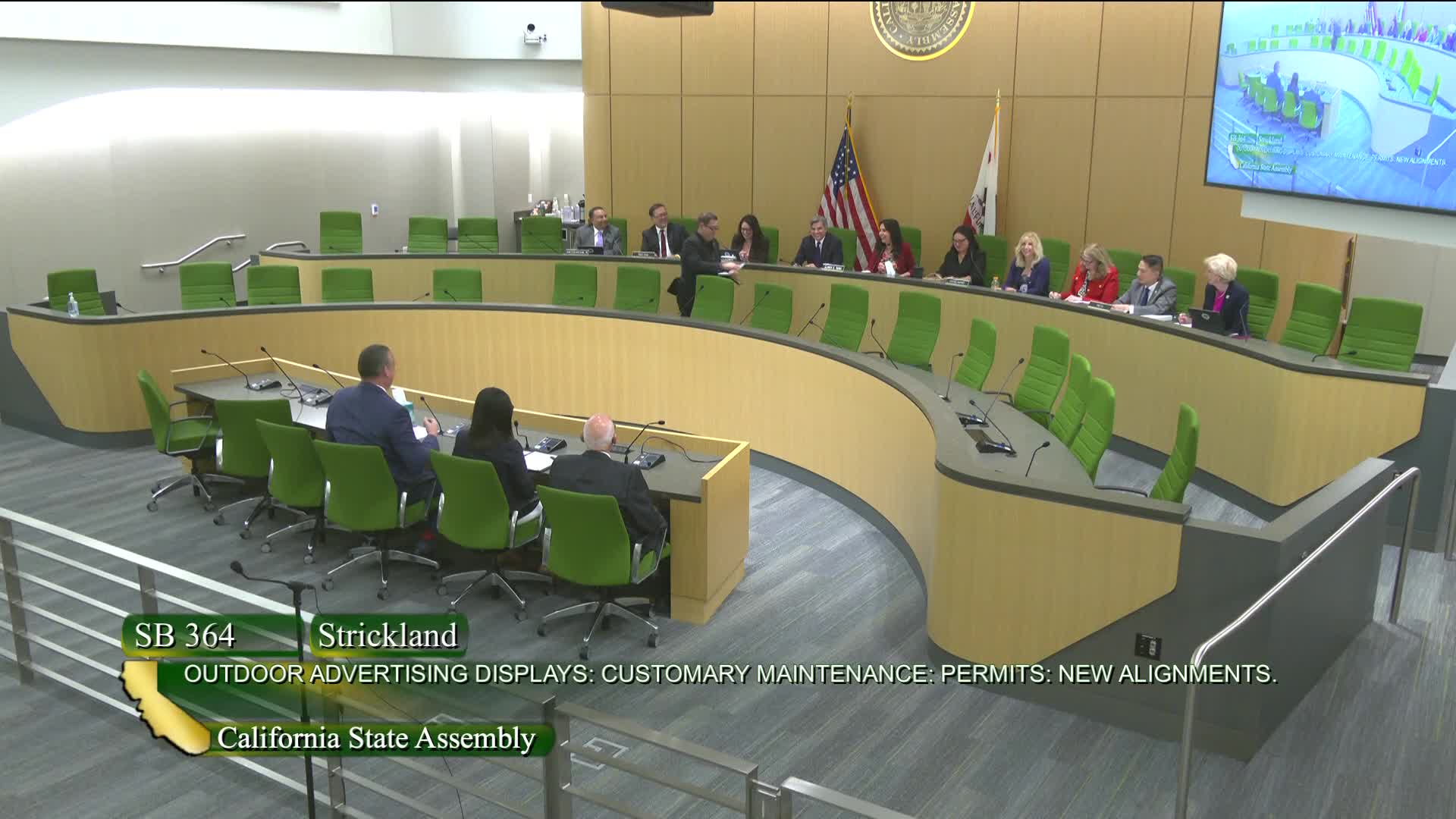Article not found
This article is no longer available. But don't worry—we've gathered other articles that discuss the same topic.

Committee extends redevelopment-era outdoor advertising rules through 2029 with SB 783

Subcommittee advances SB 395 to allow up to 20 temporary hospitality‑zone liquor licenses in downtown San Francisco

Committee advances SB 470 to extend alternative remote‑meeting rules for state boards through 2030

